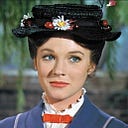Positioning in writing

«A spectre is haunting Europe — the spectre of communism. All the powers of old Europe have entered into a holy alliance to exorcise this spectre.» These are the opening words to Karl Marx and Friedrich Engels «Communist Manifesto». It was published 1948 in London and has has been widely discussed ever since. The essence of the manifesto is that Marx and Engels describe the class struggle between the proletariat (working class) and the bourgeoisie (owners of the means of production). They also discuss— amongst others — the abolishment of child labour, abolishment of inheritance and abolishment of private property. They also claim to express the general will and defend the common interests of the world’s proletariat as a whole, independent of all nationalities.
But what does it actually mean to defend the common interests of the world’s proletariat? They kind of seem to fade out the individual opinion and tend to think that the world can be divided into left and right and there’s nothing more on the spectre.
Even though I undoubtedly agree with the abolishment of the points above and think they are very actual and crucial in today’s time the manifesto also shows actuality in a — for me — negative way: I doubt that dividing the people onto poles doesn’t solve problems but it only separates people. Instead the bourgeoisie should acknowledge their privilege and use their resources in a communal environment.
Who am I?
I am Sophie, a 24 years old person who defines herself as female. But I think who I really am is not how I see or identify myself. My personality only exists because other people conceive me and treat me a certain way. They create an image of me and define who I really am. Therefore, if I was the only person on the planet I wouldn’t actually exist as there would be no resonance.
So the question «who am I» is always in the past justified by the resonance of others. The only way to find out who I am is actively shaping it for the future. So I’d rather ask «Who do I want to be?».
What is your ambition as a designer?
First of all I don’t like the job description of designer (independently from Andrea’s and Danu’s opinion!!!) as it’s too watery and I also think of it as arrogant. The designer…
So my ambitions in life are understanding people’s/my needs, desires, hopes, fears and making people/me really uncomfortable and let them/me question their/my own actions as well as giving them/myself support in any situation to learn, realise and grow.
Why don’t we ever talk/hear/learn about death?
The other day I was wondering why we as humans basically prepare ourselves for everything; a birth, a wedding, a test, a voyage. But we don’t ever really prepare ourselves for dying or for a time where we don’t exist anymore. Or even more precisely, that we don’t plan our own funeral — apart from when we’re ill or old. We expect other people (family and friends) to take care of this business and this leaves a lot of work. But what if these other people don’t exist?
I think it would be nice to have a kind of toolkit to prepare oneself for the inevitable case of death. This could be the a confrontation about one’s own death on an emotional level as well as handling all the legal/preparable stuff that comes with death.
